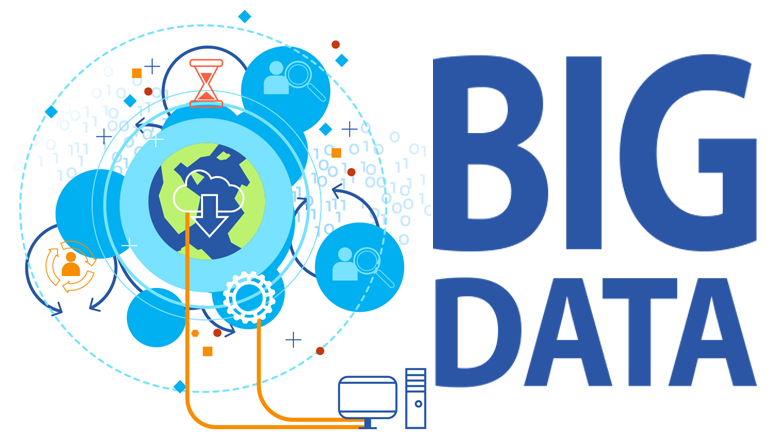The term Big Data looks quite obvious. This is something about huge amount of data and its processing. But usually, people can’t add something else or describe Big Data in more detail.
In reality, Big Data is not only about the number of data. This is a powerful tool for Artificial Intelligence (AI) and Machine Learning (ML). Big Data allows us to analyze information and create patterns for neural network training. We use Big Data every day without noticing. When you unlock your smartphone with fingerprint or face recognition or use voice assistant – you use Big Data. Such technology advancements became possible thanks to Big Data specialists who trained neural networks for such things.

How to distinguish Big Data from other data?
There are three V’s that are peculiar to Big Data and allow to distinguish it from other technologies:
- Volume – talking about Big Data we mean really huge amounts of structured and unstructured data;
- Variety – Big Data works with different kinds of data, the input of data can look like a set of the different types of information while other technologies usually process one data type;
- Velocity – this is a speed of data processing, it is very important to process all the data very fast because when the neural network is training, data must be processed in real-time.
These three points lead to the fourth V – Value. The value is about project feasibility and cost-efficiency. Implementing Big Data is really expensive process because you need to provide your team with all the required computing capacity. Sometimes this is unprofitable, so you need to understand the value of the project before the start.
Benefits of Big Data
So, if it is so expensive, what’s the profit? That’s why we mentioned value. Big Data can give you great profit but firstly you should invest in the project and development. With the right approach after implementation, you’ll have great cost reduction and fast ROI.
The second great advantage is the increased speed of data processing. Artificial Intelligence and Machine Learning can bring significant results in the right hands.
The third main benefit is customization. With the help of Big Data, you can train the system in the way you need and receive results and analytics you need. To provide this you need Big Data analyst, the person who knows what data is more important for the system and can “communicate” with the system appropriately.
These are the main benefits of the Big Data but, of course, you can receive more depending on your needs and requests.

Big Data principles
We offer you to have a look at Big Data principles for better understanding the technology as it is.
- Horizontal Scaling. In Big Data, you can work with any type and amount of information. Sometimes volumes can increase while processing, so the system needs to be scalable to provide uninterrupted work.
- Fault Tolerance. The system that processes a lot of data any millisecond needs to be stable and fault-tolerant. This requires using modules or containers. This is close to the DevOps methodology. Containerization allows designing a very reliable system. All the are data processing algorithms are split into small pieces and put to the containers. Even if one of the containers fails, the others will still be working and the faulty one will restart immediately. Such an approach allows processing data all the time you need.
- Local Data. Big Data is always stored and processed in the cloud because on-prem servers can’t provide scalability on the necessary level. There is the next thing. The closer the data processed is to the place where it is stored, the faster the processing time. Common users usually can’t notice the difference in processing speed in the cloud because it’s really fast. But for the Big Data Scientist, this difference in speed can be critical.
We’ve mentioned the Big Data is related to the DevOps and it’s true. This is a very efficient combination and this is one of the reasons of Big Data value. To provide Big Data you firstly should implement the DevOps methodology in your company. But both tools will bring great benefits as a result.
Final thoughts about Big Data implementation
As you can see, Big Data is a great and powerful technology that needs a lot of resources but can bring you great profit. The main idea is to make an assessment before using Big Data. It needs really huge capacity and might require a preliminary DevOps transformation. But as a result, you’ll have cost reduction, fast ROI and great competitiveness on the market.
If you decide to provide Big Data technology to your company, you might hire an in-house Big Data team or refer to a Managed Service Provider who has dedicated teams with ready solutions and wide experience. Both ways are viable and each of them suits different companies and situations.


